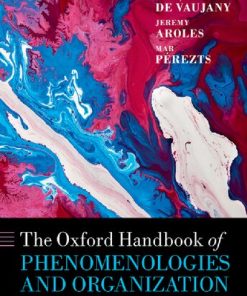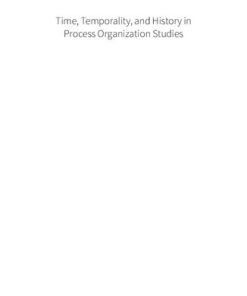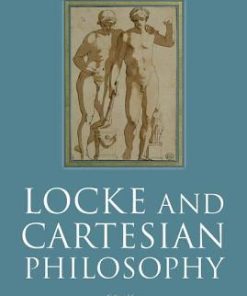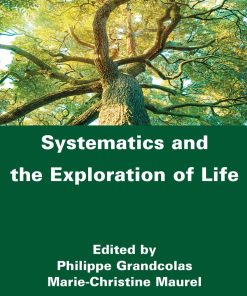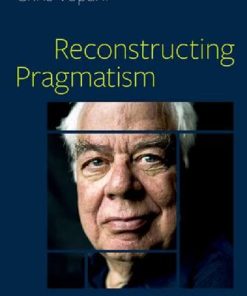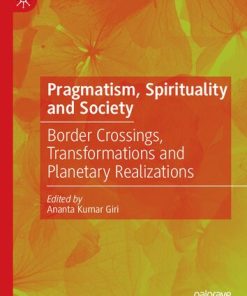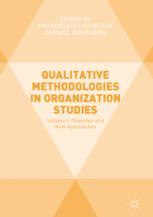Pragmatism and Organization Studies 1st edition by Philippe Lorino 0192514981 9780192514981
$50.00 Original price was: $50.00.$25.00Current price is: $25.00.
Pragmatism and Organization Studies 1st edition by Philippe Lorino – Ebook PDF Instant Download/DeliveryISBN: 0192514981, 9780192514981
Full download Pragmatism and Organization Studies 1st edition after payment.

Product details:
ISBN-10 : 0192514981
ISBN-13 : 9780192514981
Author: Philippe Lorino
Many streams of research in organization and management have criticized the mainstream view of organizations as decision-making and information-processing structures, controlled through rational representations (substantive or procedural rationality). In spite of their differences, these streams of research share some key theoretical principles: Their processual view of organizing as ‘becoming’, their emphasis on the key role of action and action meaning; their interest in the agential power of artefacts and objects; the exploratory and inquiring nature of organizing. This book argues that Pragmatist thought can contribute to those approaches offering some theoretical argument, both as a general intellectual orientation and as a conceptual toolbox. As a general attitude, Pragmatism develops a radical critique of all the dualisms which often hinder organization studies: Thought and action, design and utilization, decision and execution, reality and representation, to name a few. As a conceptual toolbox, Pragmatism can contribute and clarify key concepts for organization and management studies, such as inquiry, semiotic mediation, habit, abduction, trans-action, and valuation. However, Pragmatist thought is still little known by organization and management scholars and by reflexive managers. The proposed book aims at making pragmatist key notions accessible to them and applicable to theorize organizations and transform managerial practices.
Pragmatism and Organization Studies 1st Table of contents:
1 Historical perspective: The Pragmatist adventure, from anti-Cartesianism to anti-Taylorism…
1.1 The Metaphysical Club (1872): The origins and first steps of pragmatism
1.2 The fight against Cartesian idealism
1.3 The main figures of classical pragmatism_ Peirce, James, Dewey, and Mead
1.4 An era of decline: from Pragmatism to pragmatism
1.5 Walter Shewhart: The anti-Taylorian exploration at the Hawthorne Works (1924)
1.6 From the linguistic turn to the pragmatic turn: Rorty and Putnam
2 Semiotic mediation at the heart of organizing: Questioning the representation/reality dichotomy
2.1 The representationalist mainstream of organization studies
2.2 Two mass distribution companies: A difficult logistic integration
2.3 Struggling for work safety in a building company
2.4 Discussion of the cases: The pragmatist critique of representationalism
2.5 The pragmatist theory of semiotic mediation
2.6 The pragmatist basis of the mediation concept: Thirdness and triadic sign
2.7 Semiotic mediation: The gate to temporality and sociality
2.8 Reassessing sociomateriality
2.9 Conclusion: Signs insinuate ghosts into organizational situations
3 Habits: The actional view of organizations
3.1 From the actional to the informational paradigm of organization: A historical “drama”
3.2 Two cases
3.3 The pragmatist focus on action and meaning
3.4 The pragmatist theory of habit
3.5 Revisiting the two cases
3.6 Activity as a collective discourse expressed in the language of habits
3.7 Some convergences with other theoretical frameworks
3.8 Conclusion
4 Inquiry: The process of thinking, acting, and mediating
4.1 Introduction
4.2 Searching for performance in the cardiology department of a hospital
4.3 The pragmatist definitions of inquiry: Belief, doubt, and situation
4.4 Inquiring versus controlling and problem-solving frameworks: In search of a problem
4.5 Inquiring as a social process: The community of inquiry
4.6 From the “mind first” dualism (thought versus action) to thought/action integration
4.7 The inquiry involves three types of inference: Abduction, deduction, induction
4.8 The inquiry is mediated and mediating
4.9 Methodological and managerial implications
4.10 Conclusion: Habit and inquiry, a recursive theory of action
5 Trans-action: Beyond the individual/collective dualism, the dialogical approach to sociality
5.1 Introduction
5.2 The “sharedness” mainstream and its limitations
5.3 A few cases
5.4 The pragmatist dialogical and trans-actional approach to sociality
5.5 Dewey and Bentley’s theory of trans-action
5.6 The trans-actional approach to sociality
5.7 Conclusion
6 Community of inquiry: Trans-actional inquiry and common concern
6.1 Introduction
6.2 Case study: Communities of inquiry and communities of practice at Electricité de France (EDF)
6.3 Classical pragmatism and communities of inquiry
6.4 Two types of solidarity, two types of community
6.5 Communities of process, activity systems, and shared concerns
6.6 Managerial applications of the pragmatist approach to the community of inquiry
6.7 Conclusion
7 Abduction
7.1 Introduction
7.2 Historical definitions of abduction
7.3 Abduction as a social process
7.4 The case study: Re-inventing urban planning
7.5 Discussion of the case: Four key characteristics of the tested process
7.6 Abduction in the organizational world
7.7 Conclusion: The social process of abduction fabulates the collective future
8 Value and valuation
8.1 Introduction
8.2 Four short stories of valuation
8.3 From dualist value to pragmatist valuation
8.4 The valuation process is mediated by valuation tools
8.5 Conclusion: What is at stake in the pragmatist approach to valuation?
9 Pragmatism, a process perspective on organizations
9.1 Introduction
9.2 The process turn in organization studies
9.3 Six questions raised by the process approach to organizations
9.4 Pragmatism_ A process-oriented thought
9.5 The process of organizing in the light of pragmatist analyses
9.6 Conclusion: Some managerial and methodological implications
10 The pragmatist influence on managerial ideas and practices: The strange history of lean management
10.1 Introduction
10.2 Mary Parker Follett, “prophet of management”
10.3 Chester Barnard: Cooperation and authority
10.4 Donald Schön and reflection-in-action
10.5 Action research and the Tavistock Institute
10.6 The pragmatist sources of quality and “lean” management
10.7 The original features of “lean management” inspired by pragmatism
10.8 The call center case
10.9 Dominant practices of “lean” management today: Back to Taylorism
10.10 Conclusion
People also search for Pragmatism and Organization Studies 1st:
what is pragmatism approach
what is a pragmatic study design
what is pragmatism in research
what is pragmatism research philosophy
what is a pragmatic research study
Tags: Pragmatism, Organization, Philippe Lorino, mainstream, organizations
You may also like…
Politics & Philosophy
The Oxford Handbook of Phenomenologies and Organization Studies François-Xavier De Vaujany
Business & Economics
Time, Temporality, and History in Process Organization Studies Juliane Reinecke
Politics & Philosophy - Anthropology
Biography & Autobiography - Sports & Adventure Biography
Politics & Philosophy - European & American Philosophy
Reconstructing Pragmatism: Richard Rorty and the Classical Pragmatists
Politics & Philosophy - Anthropology
Business & Economics




